The past continuous describes a longer action or situation, and the past simple describes a shorter action or event. When I met Susan, she was having a drink at a terrace with a friend. We didn't go out because it was raining. The short action in past simple often interrupts the longer action in past continuous. He was playing football when.. Past Progressive - Secondary Use. 1. Form. was/were + ‑ing V. (See notes under Main Use - Form.) 2. Use. A less common function of the past progressive is to emphasize that an action continued for a long time. It is less common because the simple past is an acceptable, more common substitute.
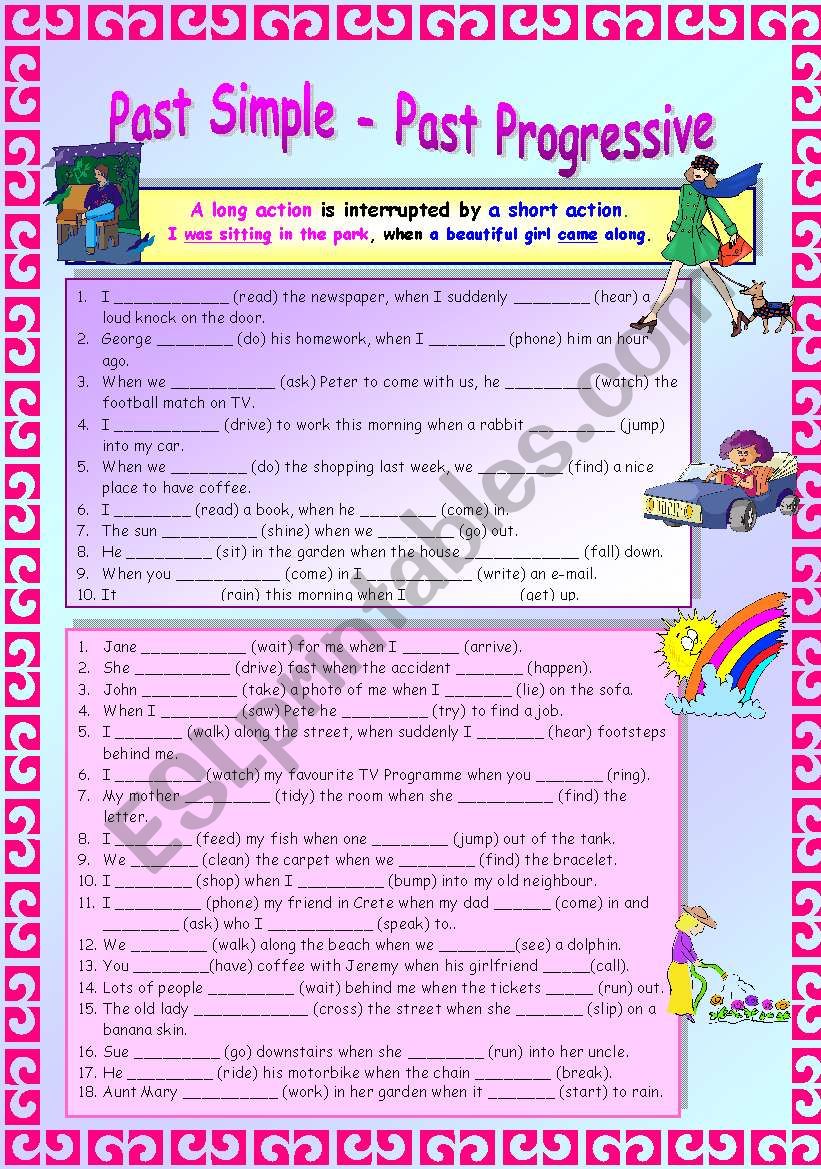
Past Simple vs. Past Progressive ESL worksheet by Mary59

Übung Gemischte Zeiten simple past, past progressive, present perfect

Custom Writing Service www.fuste.pt

Mayor odio Democracia past simple and past continuous ejemplos Poder

Simple Past and Past Progressive, Definition and Example Sentences
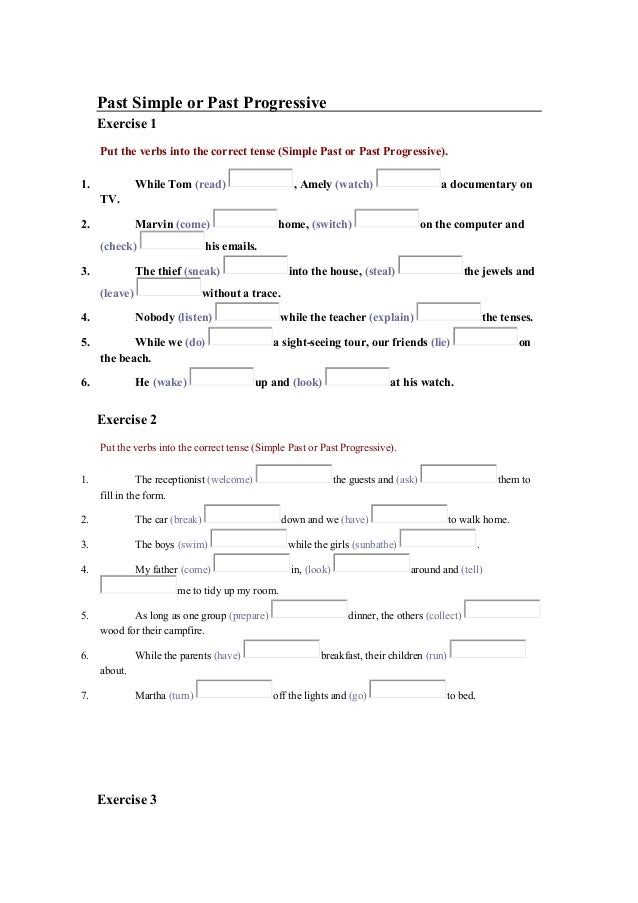
Past simple or past progressive
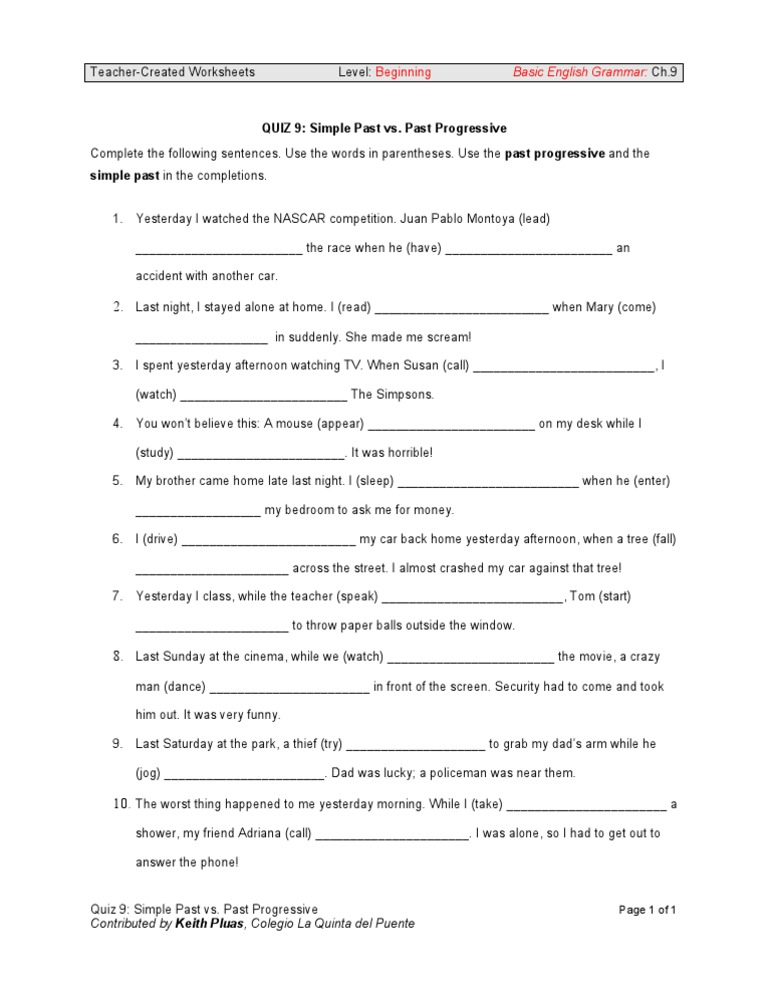
Simple past and past progressive
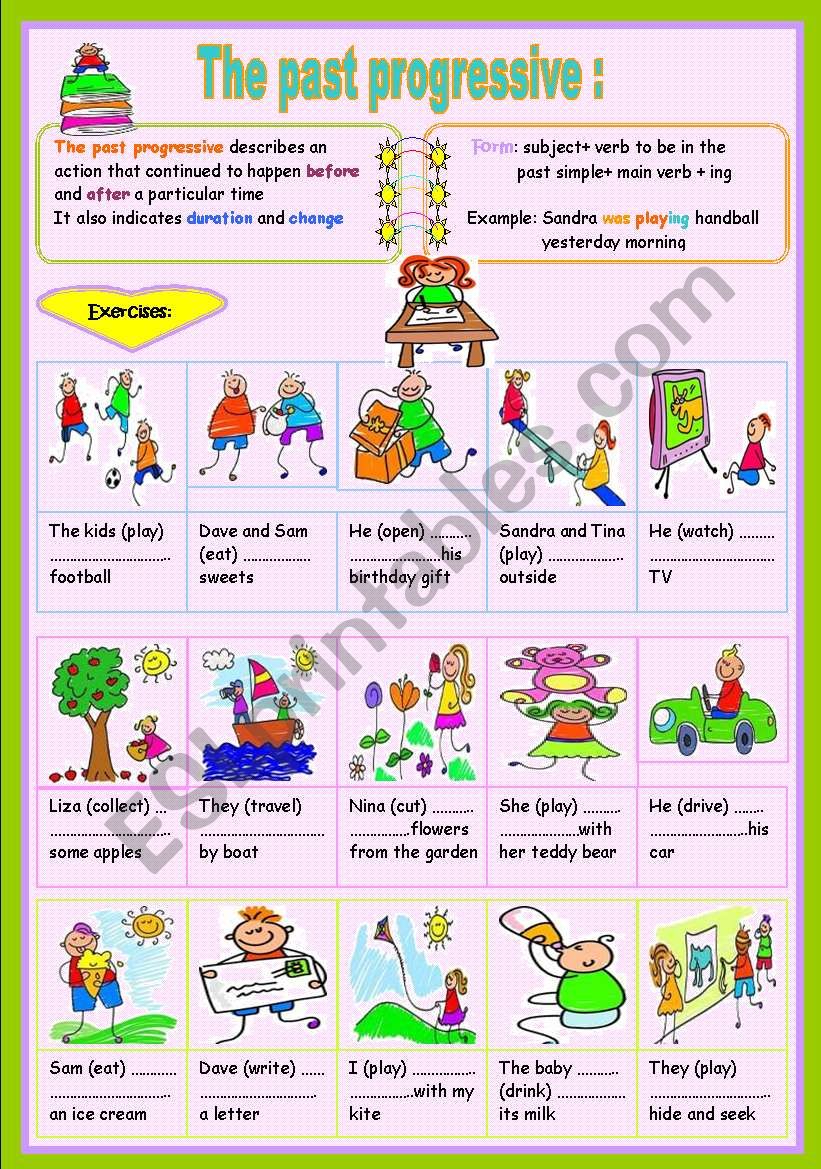
Past Simple Past Progressive English Esl Worksheets For Distance My
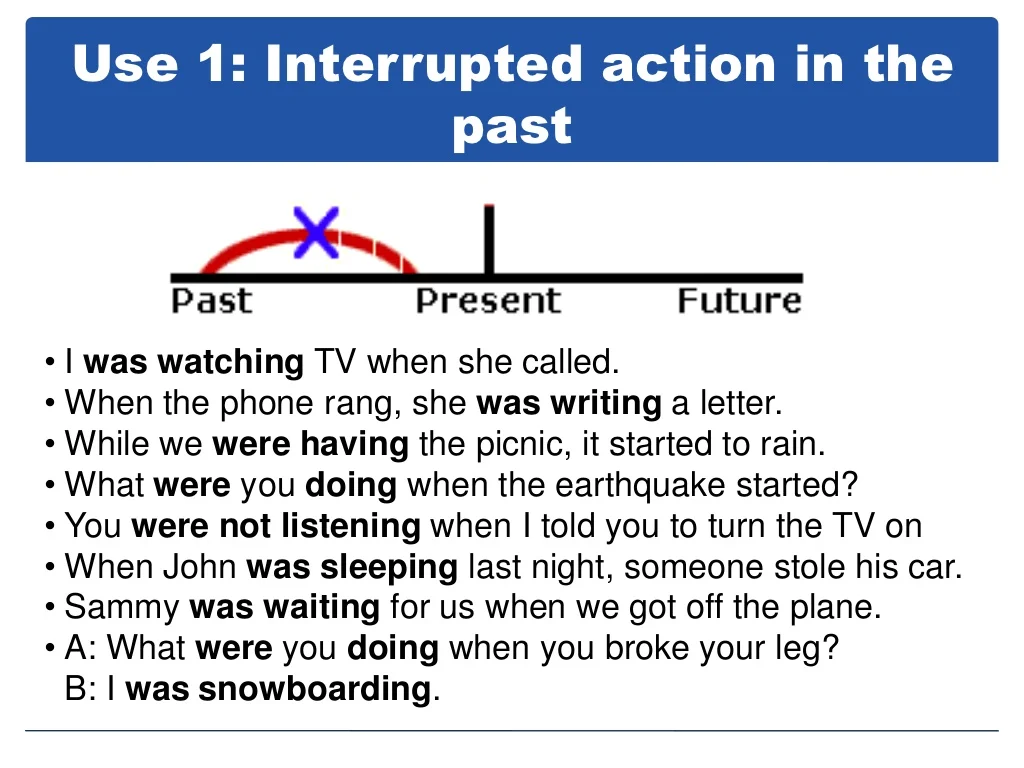
Past progressive

Past progressive and Past Simple wit… English ESL worksheets pdf & doc
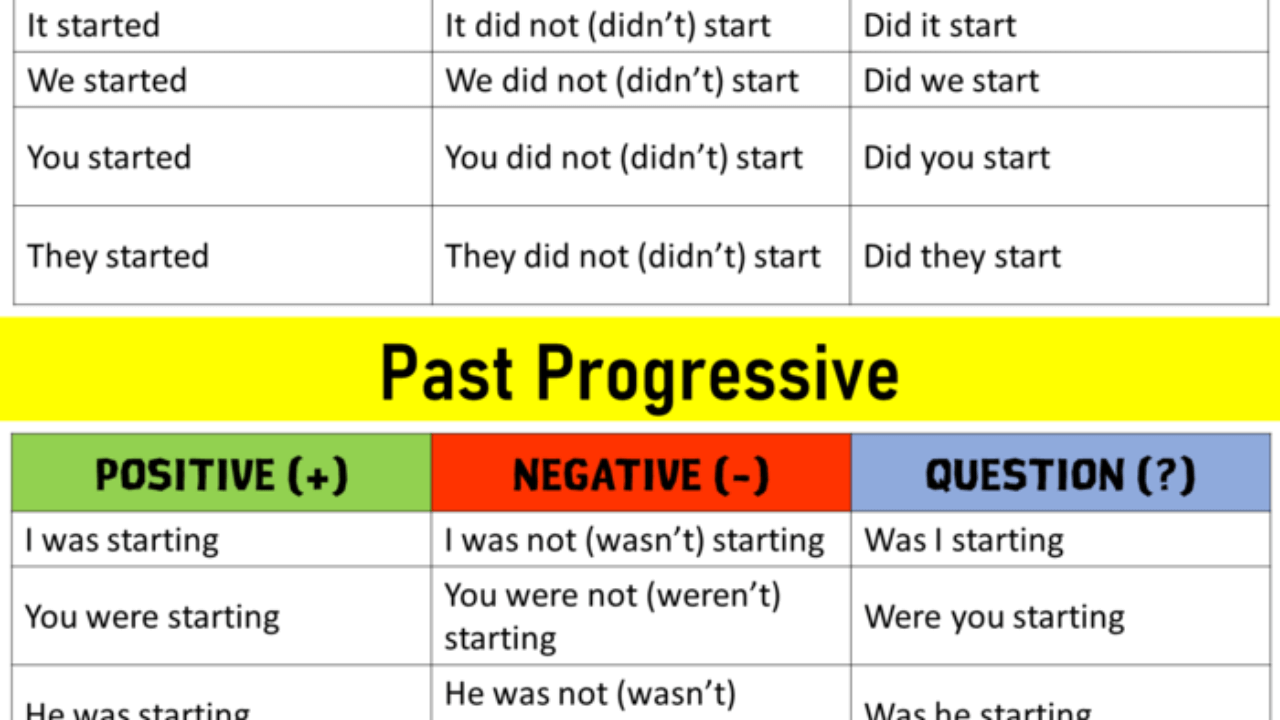
Past Continuous Tense And Past Simple Examples BEST GAMES WALKTHROUGH

Pin on Test of English Language

E4success PAST SIMPLE vs PAST PROGRESSIVE
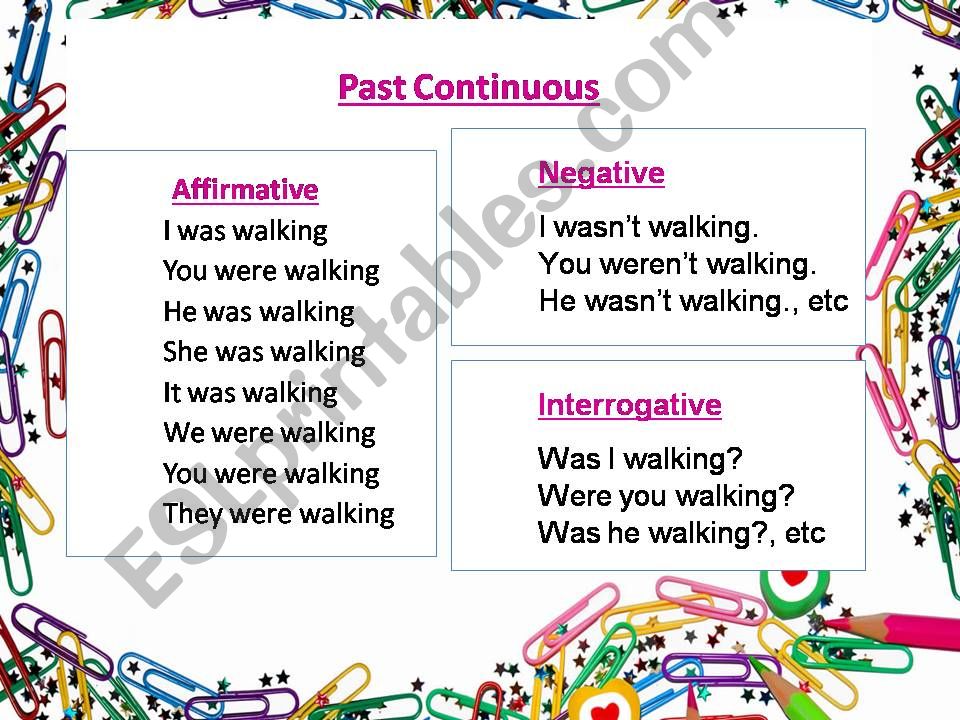
ESL English PowerPoints Past Progressive Vs´ Past Simple

Past progressive vs. Simple past 9th grade. (CVUDES Homework)
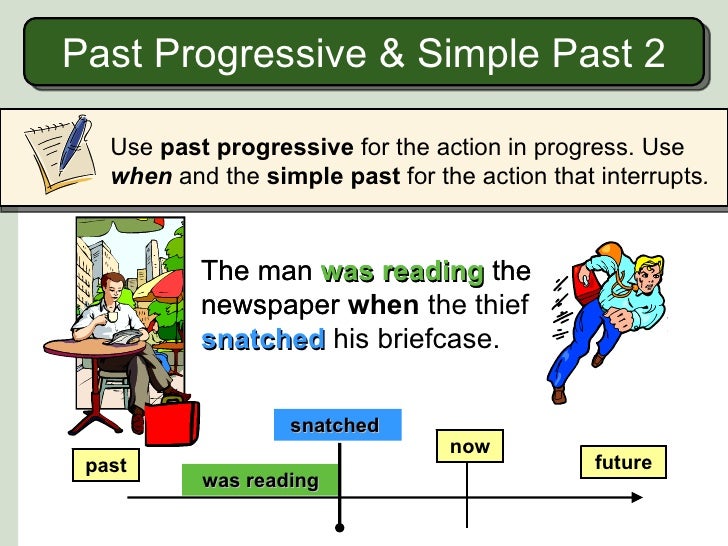
Past progressive and simple past
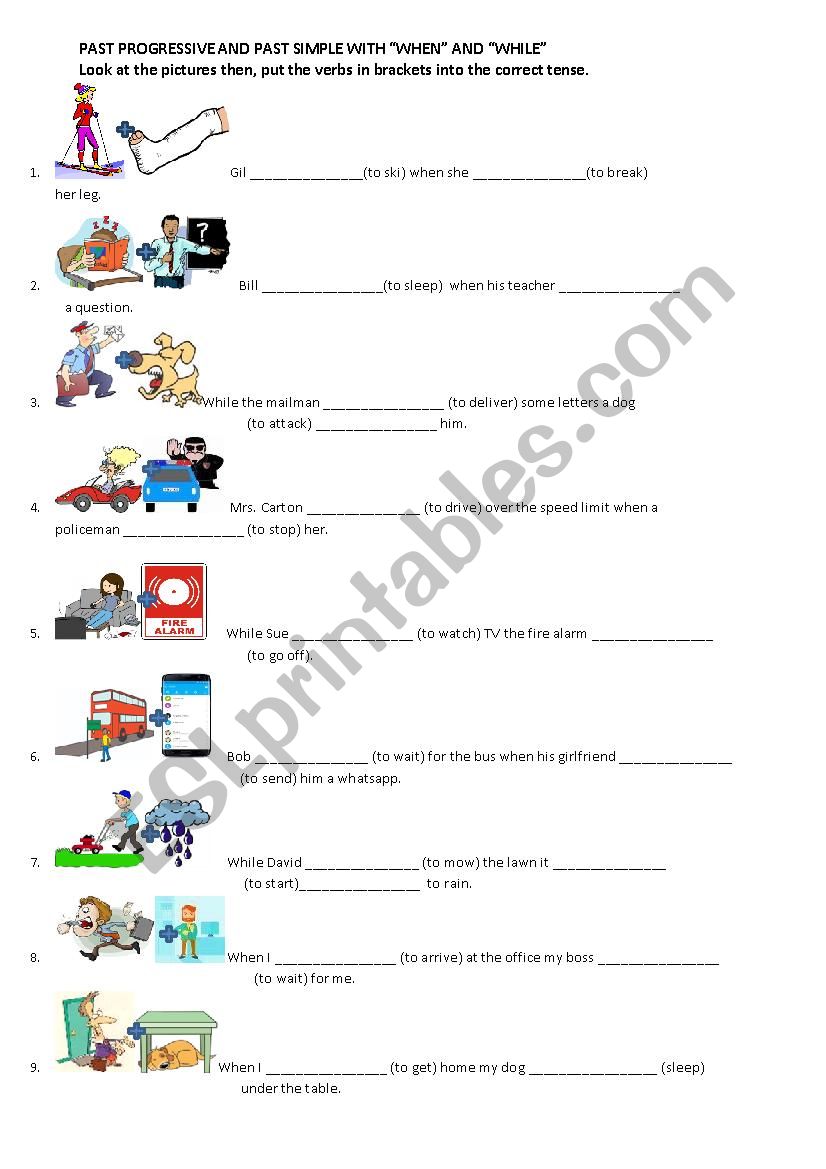
PAST PROGRESSIVE AND PAST SIMPLE WITH “WHEN” AND “WHILE” ESL

Verb Tenses Table of English Tenses with Rules and Examples 7 E S L
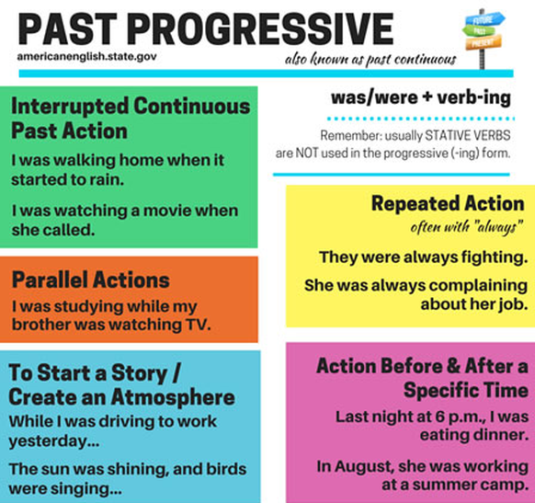
When to Use the Past Progressive Tense
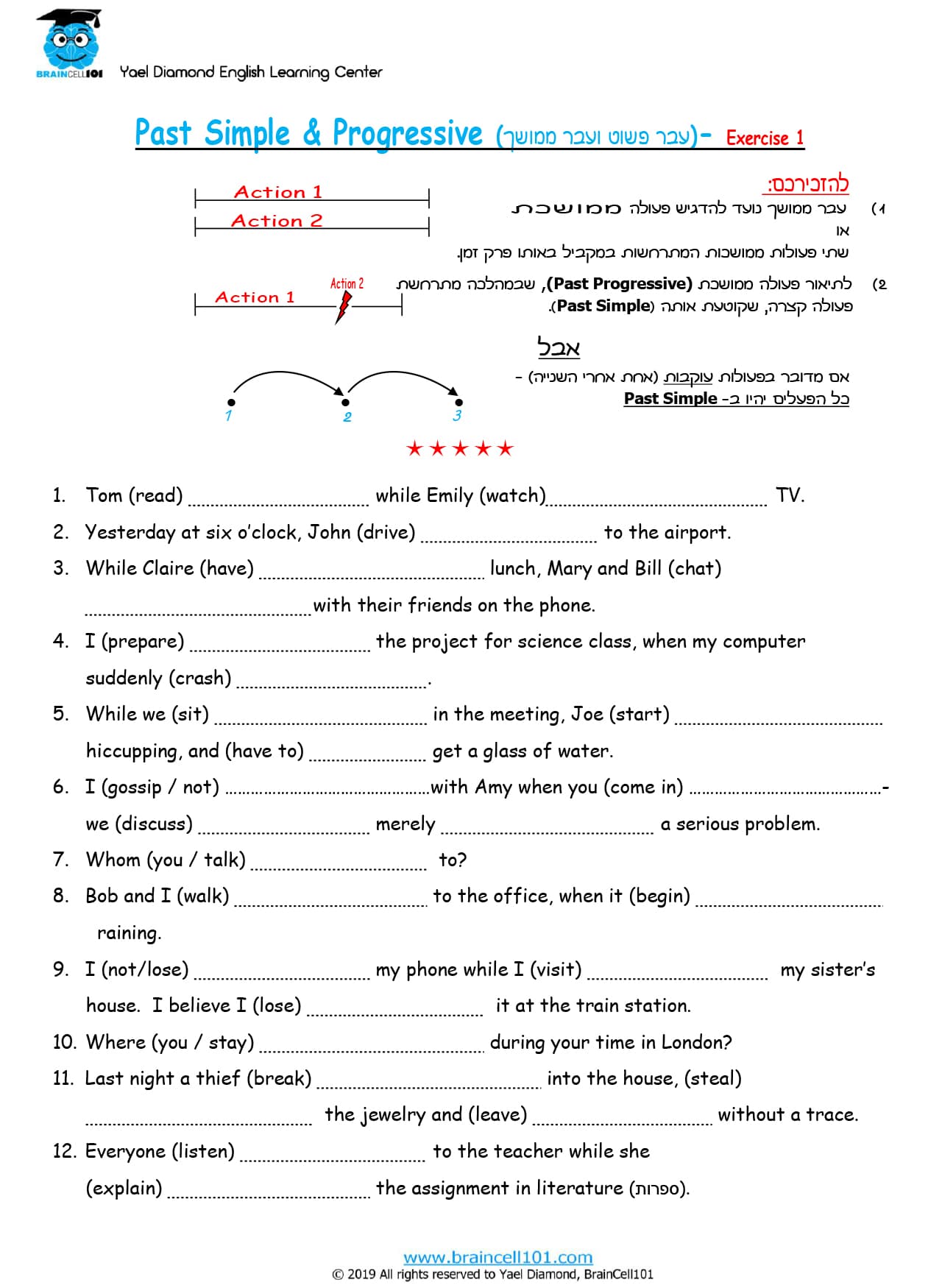
Past Simple & Progressive Exercise 2 braincell101
Past simple. Level: beginner. With most verbs, the past tense is formed by adding -ed: But there are a lot of irregular past tense forms in English. Here are the most common irregular verbs in English, with their past tense forms: We use the past tense to talk about: I met my wife in 1983. We went to Spain for our holidays.. Spelling Tip. When shortening the 1st & 3rd person (I, he, she, it) negative, just remove the o in not and add an apostrophe (') was not > was n't were not > were n't. The negative in the past progressive tense is created using was not or were not + the ing (present participle) form of the verb. Note: In general, use these contractions in the.